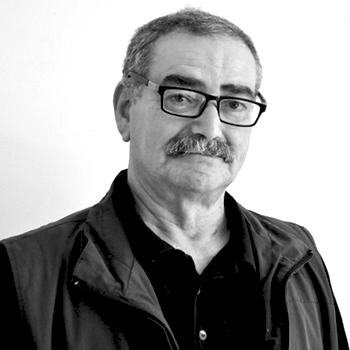
Interview with Sari Hanafi: The state of sociology in the MENA region.
By your personal background and your involvement in regional scientific and academic institutions, you have touched on the most sensitive issues of the region, do you think human sciences can make this region’s problems more intelligible?
Sari Hanafi: of course, social science is very important in our late modernity not only for the Arab world but for all regions. We live in a turbulent world of social inequality, violence and injustice. Cases of severe poverty are coupled with recurring outbursts of state repression, conflict and displacement, states of military occupation and spaces of exception, as well as global and local military insurgencies and resistance. Despite their substantial divergences, along a continuum, they exhibit different points along the passage from the rule of law to the “law of rules”. Our world is going through a period of turmoil, full of Trumps and mini-Trumps, yet I do believe in the potential of the social sciences to address many critical issues.
One of the functions of the social sciences is to observe practical reasoning of elites and people, and it becomes so urgent when our society is full of those who have believed for long on propaganda of the Arab authoritarian regimes. When these regimes played so successfully to people's need for the absolute, establishing facts and truth become so difficult. Hannah Arendt wrote once in her seminal work Origins of Totalitarianism that “The ideal subject of totalitarian rule is not the convinced Nazi or the convinced Communist, but people for whom the distinction between fact and fiction (i.e., the reality of experience) and the distinction between true and false (i.e., the standards of thought) no longer exist.” For instance, the social science should point out paths for democracy. Authoritarianism cannot be ended in the Arab world without the minimal agreement among different elite formations about the form of the transition to democracy. Other issues should be postponed when democratic process is consolidated. As some political theorists in the transitology studies argue the role of the elite is so crucial in the transition and only establishing non-authoritarian practical reasoning will help to reach overlapping consensus (a term dear to John Rawls).
What is the state of social science research in the MENA region today - are there differences between countries in the region at this level?
Sari Hanafi: the differences are enormous. We have very vibrant social sciences in Morocco, Tunisia, Lebanon and Palestinian territories; and much less elsewhere in the region. It is not by chance that the three above mentioned countries are where you have more freedom of expression in a region whose regimes are very authoritarian.
While academic voices are more heard in Tunisia when it comes to controversies, such as the Gender Equality in the Inheritance debate. The Individual Freedoms and Equality Committee, a committee created in 2017 by the President to reform the laws of Tunisia to conform to the post-revolution 2014 constitution was composed of jurists and civil rights activists with a gender parity: two thirds of the committee are actually university professors in the social sciences. the diversity of the actors on the political scene in Tunisia is a remarkable example in the Arab world. The line between academics and political activists is blurred. Many of the entries analyzed, whether from Facebook, radio, articles, interviews, public lectures, television, or personal blogs, were formulated by academics who currently teach in universities. Those very academics were also present on the streets when the people were protesting. The social impact of the research provided by those academics, and their role in the formulation of the public awareness, is substantial and important. However, a distinction does arise between the academics who were for the law, who are more in touch with governmental institutions and the political elite, and the academics supporting Islamic inheritance, who seem to be more connected with the masses. Furthermore, in the content analysis of the debate, it is interesting that academics and public intellectuals have been involved since the beginning in the public discourse. The very report issued by the Committee was mostly written by academics, then it was responded to by al-Zaytouna and many political and academic figures. After that, the people took the streets, and the public debate began to crystallize.
My co-author book (avec Rigas Arvanitis)Knowledge Production in the Arab World: The Impossible Promise shows clearly that Lebanese social scienstis are much less involved in the public debate that their collegues in Tunisia or in Morocco.
In Syria, it is only after the grand exodus of academics from Syria since 2011 that we find very interesting public and critical scholarship of the Syrian social scientists. I am thinking of all the contributors to a newly established academic journal in Arabic Qalamoun, co-published by Harmoun Center and the Syrian Social Science Association. Sociologists such as Khader Zakaria from Syria or Mustafa El-Teer from Libya wrote already about all the predicament of producing critical knowledge in the context of dictatorship.
Your most recent work explores the knowledge society and the failed meeting with it at the regional level, why did you land on this prospect?
In recent years, research and analysis on knowledge production and innovation in the Arab region has grown. Probably, this was triggered by the first Arab Human Development Report of the UNDP which was stressing the need for better education, freedom of thought and more adequate jobs in the Arab countries. Thus, the production of knowledge was set in the agenda, and joined, not unexpectedly, the interests of enterprises, promoters of a more competitive economy, and the World Bank in the promotion of a knowledge economy. The issue was not anymore, only that of expanding awareness on the importance of knowledge in society, but that of competitiveness of the Arab Economies, through the promotion of a Knowledge Economy. Research appeared to be one among other ‘pillars’ that needed to be constructed in order to accompany the entry of Arab countries into the Knowledge Economy.
The good newsof the tremendous growth on the scientific publication in some areas in the Arab world, has not been translated into process of using this production in public policy and societal debates.Based on Michael Burawoy’s typology of knowledge: professional, critical, public and policy, I argue that professional and critical research activities have many problems in knowledge translation beyond the university confines.Thus the salient stake is how the scientific research is in the same time universalistic and internationalized endeavor but also relevant to needy community and to the society at large. So we can call a society or an economy as knowledge society/economy only with there is such translation into public and policy activities.
Three profiles of researchers in social science will be overserved: those who publish globally and perish locally ; those who publish locally and parish globally ; but also those who perish locally and globally. I am more interested in research that could be relevant locally but is written to be read by a tiny elite that, in its turn, disconnected from its society. This is due not only to the absence of their products in the mass media or newspapers but also to the difficulty of conversing with the policy makers. Many reasons will be unfolded for the difficulty for the scientific research to negotiate its place in the public sphere.
I could summarize how the knowledge society discourse has been projected in the Arab world as following: the UN/World Bank rings alarm bells concerning the situation of knowledge production but in the same time they adopt a methodology and indexes that cannot help the Arab world in how to create knowledge that is useful to their political and socio-economic status.
The industry in Arab countries has rarely developed typical knowledge economy industries, such as production or assemblage of electronic components, biotechnology or pharmaceutical industry. The Lebanese economist Ali Kadri talks even to policies of de-industrialisation that have laid to waste the production of knowledge. The indexes used for post-industrial society do not fit the reality of many Arab countries. We will use some examples that show methodological and/or data collection problems.
I have tried, as others, to keep an optimistic view about the future. But hiding the situation by the ritual invocation of the ‘knowledge economy’ or the ‘knowledge society’ as a solution to the problem of research is nothing but a rhetorical tool. But I cannot but convey this permanent feeling of unfulfilment that my colleagues express in their own words when they blame a ‘brain-dead country’ (!), the inadequate procedures, the short-sighted policies. Although not unanimous, these negative judgments are quite common and contrast strongly with the positive and political platitudes served by governments concerning research: that I should triumphantly enter in the new knowledge economy, leaving behind us under-development, and embracing willingly globalisation and its benefits! Beyond the resources issues, engineers and economists are challenged to accompany this change while political challenges still very important including the democratic ideal that was behind the Nahda (Arab renaissance).
Finally let me say that in order to deal with this situation, I founded the Portal for Social Impact of Scientific Researchin/on the Arab World (Athar) (https://atharportal.net/) to redress the problem of knowledge produced but not used. It is an open repository which benchmarks the whole life cycle of research including knowledge transfer and public or policy-oriented research activities. “Athar” relies on the data introduced by the researchers which include description of their research projects and outputs of their social impact. The “social” is meant in broad sense, which includes economic, political, cultural and conceptual aspects. The search engine can be used by all stakeholders (researchers, Institutional beneficiaries, policy makers, the public, funding agencies, etc.).
Sari Hanafi is a sociologist with already a rich intellectual production. He is Professor at Department of Sociology, Anthropology & Media Studies at the American University of Beirut, President of the International Sociological Association and Editor of the Arab Journal of Sociology “Idafat”.His researchis related to the political and economic sociology of the Palestinian diaspora and refugees, sociology of migration, transnationalism, politics of scientific research, civil society and elite formation and transitional justice. His most recent work explores knowledge production in the Arab context.He was invited to Morocco in 2018 by the university chair of Fatema Mernissi, an academic research structure born from a partnership between Mohamed V university of Rabat and Economia. HEM research centre. This structure is dedicated to the memory of the great Moroccan woman sociologist and targeting to pursue some of its research projects. One of the most important topics of the Rabat meeting was an attempt to assess research in the field of sociology in the Middle East and North African countries. This interview with Professor Hanafi highlights the relationship between elites’ genesis and knowledge production processes across cultural contexts. |
Bachir Znagui
Journaliste et consultant de profession. Depuis 2012 il s'occupe également de l...
Voir l'auteur ...

